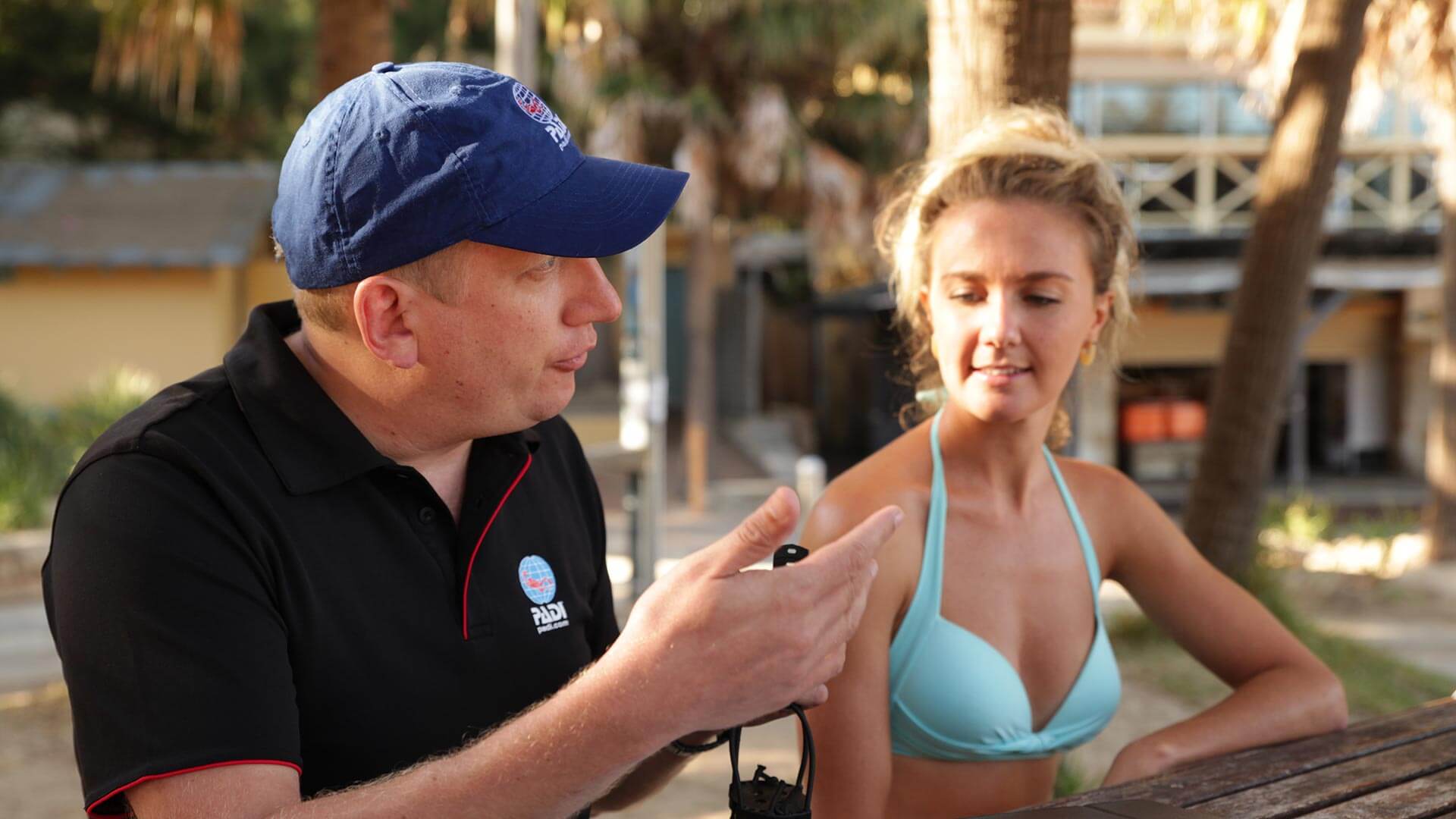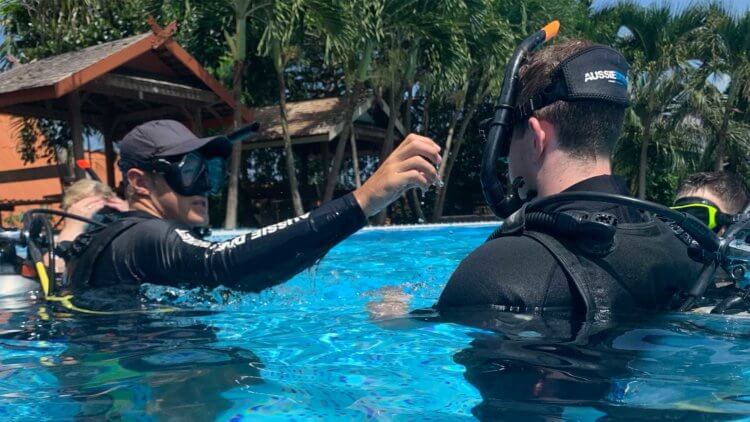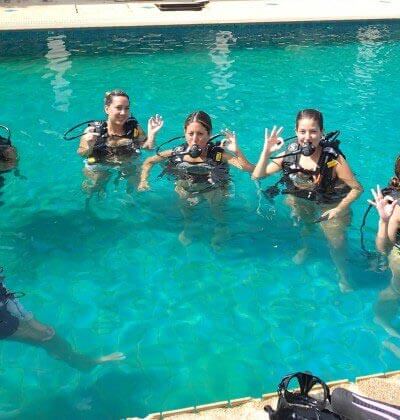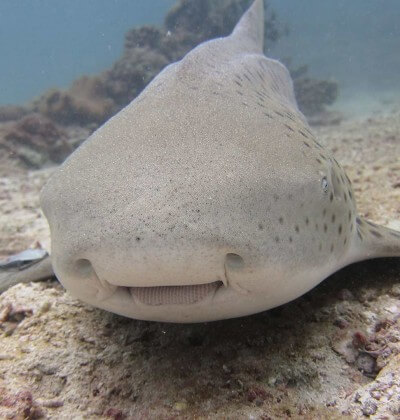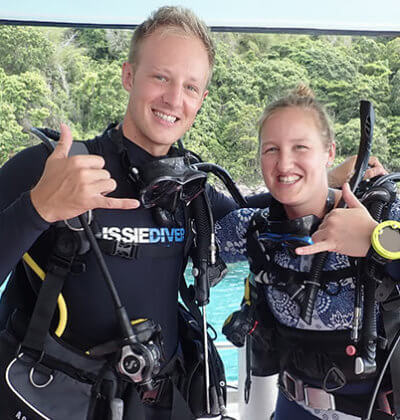The Importance of Risk Management in a Scuba Diving Centre
Here is a blog on the Importance of Risk Management in a Scuba Diving Centre
Follow the rules and stay safe
I guess my concerns for scuba diving risk management stem from my time with Victoria Police where prevention was always better than a cure.
It was where I also learnt that to do nothing would contribute to the problem. For example if we didn’t check any drivers for alcohol, there would be a lot more drink drivers. Hence more accidents and ultimately more fatalities. The role of police is to be proactive in preventing these fatalities. Sometimes this was to the displeasure of the drivers. Ultimately it was for their benefit and the benefit of the greater population. This attitude can directly be applied to us as dive instructors.
What I also learnt during this time was how an investigation was conducted. How police (and other investigative parties) interviews work, the true meaning of negligence and how the court system ultimately finds blame.
Police interviews are never a pleasant thing. Their interviews are very thorough and normally do not just stick to the one incident. They try to paint a picture leading up to the incident. They will try and find a pattern of behavior. Investigators can also ask random questions such how much sleep you had or how much you had to drink the night before. They also may look into your teaching career years earlier.
Understanding the Law
In Australia the legal system has for levels of grading when finding fault during an investigation of injuries or fatalities. They are accidental (no further action), negligently, recklessly and deliberately. The last three all require further action i.e charges and court proceedings. Each level has a more severe penalty if the defendant is found guilty. The only other possible outcome would find the injured or deceased was to blame.
Negligence is the most common outcome in an injury investigation and it is described as this by UK Law.
“Negligence occurs when someone injures or causes a loss to another because of thier careless or reckless behavior. In everyday life, negligence could include a lack of care for the consequences of one’s actions or using less care than that of a reasonable person”.
“The four elements that a plaintiff/prosecution must prove to win a negligence suit are 1) Duty, 2) Breach, 3) Cause, and 4) Harm”.
As scuba diving instructors we are bound by a duty of care so point one will always be proved. If your student/customer is hurt then point four is also proved. Breach PADI Standards i.e taking photos during a Discover Scuba Diver, not being within immediate contact of a DSD or added/performed incorrectly will see point three proved.
This means that all the investigator only needs to prove that your behavior, lack or attention or attitude caused the incident. Australian civil courts work on a balance of probabilities and to find guilt they only need to be 51% sure you were to blame. That is not as difficult as what some people believe.
Vicarious Liability
One last point that dive instructors and dive centre owners should be aware of is the term “Vicarious liability”.
“Vicarious liability, sometimes referred to as “imputed liability,” is a legal concept that assigns liability to an individual who did not actually cause the harm, but who has a specific superior legal relationship to the person who did cause the harm”.
This means that dive centre managers/owners could be liable for the actions of their instructors. Instructors could be liable for the actions of a dive assistant under their authority.
Richard Evans
Understanding this process was what made former PADI Risk Management guru Richard Evans such an inspirational speaker. Especially so when it comes to scuba diving accidents. It also led to Richard creating an excellent educational video called “The Duty of Care”. This video was based on a real life scuba diving fatality. It is a must watch for any IDC candidate, divemaster, dive instructor or shop owner of manager. **For the record, how our PADI Asia Pacific leader wasn’t nominated for a best actor award is beyond me….
I first went to one of Richard’s presentations around 2010 (prior to me starting my own dive business). I was a brand-new instructor. Sadly, the presentation was on a Saturday night and only around ten divers attended. It was my most memorable PADI seminar to date. He told of nine real-life accidents that night all that ended in fatalities. His story telling is exemplary and he has the ability to place you the dive instructor into the scenario.
Getting the point across
Richard is very articulated in presenting the story and very careful not to be derogatory to the instructor involved. But what he ultimately did was say “but hey, it was your fault” and at the end of the day, most scuba diving incidents with students are the instructor’s fault.
I recall that at least four of the stories Richard told started with similar things that I was doing as an instructor on a day to day basis. I remember walking away thinking “hey, that could happen to me if I am not careful”.
What I learnt from that night was two very important things. First, these incidents could occur to any instructor, even those considered good instructors. And the second, most accidents happened because of complacency or carelessness. If a dive instructor is not switched on, an incident can happen at anytime, anywhere. A dive instructor has to be focused 100% of the time, every dive they do.
The Business
When I started Aussie Divers Phuket, from what I learnt in my time in the police force and inspiration from Richard Evans, I swore to myself that I would build a culture of risk management within the business. I would do everything that I can to make sure that my dive centre is serious accident and fatality free.
Creating a good risk management culture is not an easy one however it is also not that difficult either.
The Rules
The first rule is to abide by PADI Standards. Not just the ones you chose to but all of them. These rules have been made collectively by some of the most experienced PADI staff over a period of 50 years. At the time the rules were made they were armed with a whole lot of information that both I and the average dive instructor were not privy to. These rules were not only made for our safety and the safety of your students but also for our legal protection. If you abide by the rules there is a much greater chance you will not be found negligent if an incident occurs.
PADI are not obligated to tell us why the rules were made but an instructor/dive centre are obliged to abide by the rules. No matter how much a DSD participant wants underwater photos, the instructor can’t take them. Yes, the 200 metre swim and 10 minute float are compulsory in the Open Water Course and for a very good reason.
Near Misses
As with all instructors and dive centres near misses do occur. Near misses should be the ultimate way that a dive instructor learns. Consider it, “the one you got away with”. It is important for the dive instructor to analyse that near miss and it is important for the dive shop owner or manager to sit down with the instructor and other instructors to go through that incident.
This is not always an easy task. It is a normal attribute of life to want to blame the other party, in this case the student. However getting back to the “Duty of Care” ultimately most of the weight of blame will be directed to the instructor.
It is important for the dive centre owner/manager and instructor talk through the incident and try and understand how and why the incident occurred. A very good question that an instructor needs to answer truthfully is “if I had my time again would I do anything differently”. Normally then, we start to get to a fundamentally reason why the near miss occurred however more importantly how to prevent it again. As uncomfortable as it may be for the dive instructor involved it is also beneficial to share that experience with all of the teaching staff. The dive centre as a whole should learn from a near miss.
It is important to note, that the reason “I told the student to do or not to do something” is not an automatic defense to negligence. The dive instructor still carries a duty of care even if they have told a student not to do something.
Risk management and the Instructor Development Course
At an Instructor Development Course level, I find the Risk Management presentation as the most important. I am often quoted saying “it is not my job to teach you how to be an instructor, it is my job to teach you how to be a safe instructor” i.e how not to kill anyone… It is the first presentation I do after the compulsory Orientation presentation. I think Risk Management presentation can relate to every other presentation that we do. The Open Water Course presentation involves a lot risk management discussions. It is also one of the longest presentations I do. I take the time to analyze different real life incidents and provide examples of near misses I am aware of.
This is also a great time to play the “Duty of Care” video. I always spend time with the IDC candidates evaluating the nine different true issues that arise. The question is then asked again of the candidates “how would have you don’t that differently?”. It is a fantastic topic for debate and does cause great discussions. One important factor is to try and turn back the clock. It is easy to critical in hindsight. Try and place the student in the shoes of the dive instructor in the video.
The IDC is also a great time to do some in-water role plays that do end up as incidents. With a new IDC curriculum allows a lot more time for that and allows the IDC to also focus a lot more on risk management than it did previously. Confined water and open water sessions should always have a risk management theme.
PADI Risk Management Seminars and Webinars
Lastly, attending PADI Live Risk Management seminars or watching PADI Online Risk Management seminars is vital to the education of the instructors and dive centre managers/ owners. I often say, if you only go to or watch one seminar a year, make it the risk management one. Listen to what the presenters say, and if the tell you a story where a dive went bad, make sure you and your dive centre do not make the same mistake. It is one of the best ways that we learn and stay safe.
Conclusion
I love my job and my business and most dive instructors do too. Same say it is the best job in the world and most days that is difficult to argue with. Risk management is vital in us retaining our jobs and our businesses and most importantly giving scuba diving a good reputation.
All that could be thrown away in a few seconds with complacency, carelessness, lack of focus or being ignorant to the rules. Be proactive in preventing scuba diving problems.
Risk Management is the most important tool that you have to make your career in the dive industry a long, safe and happy one.
Take care and safe diving.
Contact Aussie Divers Phuket for all your Scuba Diving needs
Posted in Helpful Diving Info on .

